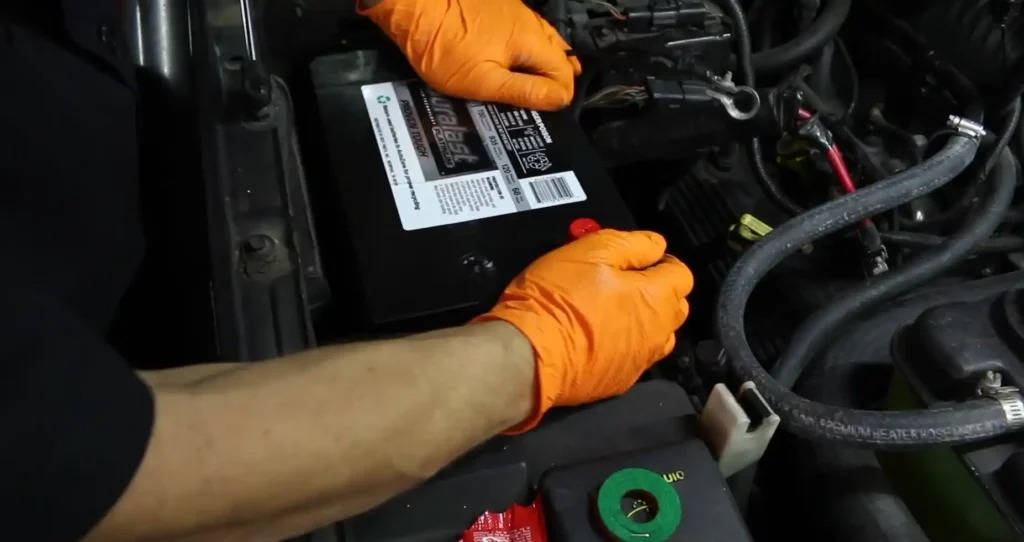
In the rapidly advancing landscape of renewable energy, electric mobility, and portable electronics, Battery Manufacturers have emerged as the unsung heroes driving the global transition toward a more sustainable future. As demand for high-performance, long-lasting, and energy-efficient batteries intensifies, the role of battery manufacturers in shaping the global energy infrastructure has become critical. These companies are not only supplying power but also powering innovation, technology, and progress across every sector.
The Importance of Battery Manufacturers in Today’s World
Driving Clean Energy Adoption
Battery manufacturers are central to the global shift toward renewable energy sources. With solar and wind power becoming more prevalent, efficient energy storage solutions are vital for maintaining a steady energy supply. High-quality batteries from leading battery manufacturers ensure that renewable energy can be stored and used even when the sun isn’t shining or the wind isn’t blowing.
Powering Electric Vehicles
The electric vehicle (EV) revolution would not be possible without reliable battery technology. As automotive giants compete to electrify their fleets, battery manufacturers play an integral role by delivering batteries with greater energy density, faster charging capabilities, and improved life cycles. The partnerships between EV companies and battery manufacturers are shaping the future of mobility.
Enabling Portability and Connectivity
In a world where smartphones, tablets, laptops, and wearables are essential to daily life, battery manufacturers continue to develop advanced solutions that power these devices more efficiently. From consumer electronics to industrial tools, batteries are the invisible backbone of mobile technology.
Key Innovations by Top Battery Manufacturers
Solid-State Battery Technology
One of the most groundbreaking innovations in battery manufacturing is solid-state battery technology. Unlike traditional lithium-ion batteries that use liquid electrolytes, solid-state batteries use solid materials, offering higher energy density, improved safety, and longer life. Several battery manufacturers are investing heavily in this next-generation solution.
Enhanced Battery Recycling Processes
With environmental concerns on the rise, many battery manufacturers are incorporating recycling into their production cycles. Closed-loop systems, where old batteries are broken down and materials are reused, are becoming a norm. This sustainable approach reduces waste and conserves valuable resources like lithium, cobalt, and nickel.
AI-Driven Battery Management Systems (BMS)
Battery manufacturers are also adopting artificial intelligence to improve the efficiency and safety of their products. AI-integrated BMS monitor battery health, optimize energy use, and prevent potential failures by predicting anomalies in real-time. This integration boosts performance, reduces downtime, and extends battery life.
Global Leaders Among Battery Manufacturers
1. CATL (Contemporary Amperex Technology Co. Limited)
CATL has become a global leader in lithium-ion battery production, particularly for the EV industry. Based in China, CATL supplies batteries to leading automakers, including Tesla, BMW, and Hyundai. With a focus on innovation and scale, CATL continues to set benchmarks in the industry.
2. LG Energy Solution
Headquartered in South Korea, LG Energy Solution is one of the most recognized battery manufacturers globally. Known for high-energy-density lithium-ion batteries, LG serves a broad spectrum of applications, from electric vehicles to energy storage systems and consumer electronics.
3. Panasonic Energy
Panasonic has a long-standing reputation in electronics and battery manufacturing. The company has been a strategic partner to Tesla and continues to invest in advanced battery technologies, including solid-state batteries. Panasonic’s commitment to quality and innovation makes it a top-tier manufacturer.
4. BYD
BYD, another Chinese powerhouse, is not only an EV producer but also a major battery manufacturer. Their proprietary blade battery technology emphasizes safety and durability, making them a preferred supplier for electric buses and passenger cars worldwide.
5. Samsung SDI
Samsung SDI, part of the Samsung conglomerate, focuses on energy solutions ranging from automotive batteries to ESS and portable device batteries. Their R&D-driven approach ensures they remain at the forefront of battery innovation.
6. SK On
An offshoot of SK Innovation, SK On has been expanding aggressively in the global battery market. With significant investments in production facilities across the US, Europe, and Asia, SK On aims to become a leading player among international battery manufacturers.
7. AESC (Automotive Energy Supply Corporation)
Initially a joint venture between Nissan and NEC, AESC has now expanded under Envision Group. Known for reliability and safety, AESC supplies batteries for Nissan Leaf and other EVs, making them a consistent and trusted name in the battery industry.
8. Envision AESC
As a continuation of the AESC legacy under Envision, this company has pushed into smart battery technology and sustainable production. With a focus on clean energy ecosystems, Envision AESC represents the new direction for responsible battery manufacturing.
9. Northvolt
A European startup making waves, Northvolt is focused on sustainable battery production with a low carbon footprint. Based in Sweden, the company is backed by major automakers like Volkswagen and BMW and is expected to become one of Europe’s largest battery manufacturers.
10. MANLY Battery
MANLY Battery is gaining recognition for its innovation in lithium battery manufacturing. With strong research capabilities and scalable production, MANLY is positioning itself among the world’s leading battery manufacturers, focusing on both performance and environmental responsibility.
Regional Trends in Battery Manufacturing
Asia-Pacific: The Powerhouse of Battery Manufacturing
The Asia-Pacific region dominates the battery manufacturing sector, with China, South Korea, and Japan at the forefront. These countries host the headquarters and mega-factories of the largest battery manufacturers, driven by robust government support, supply chain ecosystems, and export capabilities.
Europe: Embracing Green Technology
European nations are ramping up battery production to reduce reliance on imports and support EV adoption. Companies like Northvolt and ACC (Automotive Cells Company) are emerging to meet local demand while emphasizing sustainability and circular economy principles.
North America: Reshoring Battery Supply Chains
To support domestic EV production and reduce dependency on foreign suppliers, the U.S. and Canada are investing in local battery manufacturing. Gigafactories from Tesla, GM, and Ford in collaboration with leading battery manufacturers are transforming the North American landscape.
Key Metrics to Evaluate Battery Manufacturers
Production Capacity
A critical factor when assessing battery manufacturers is their production capacity. Larger capacities not only indicate market strength but also ensure supply reliability for large-scale projects like EV fleets and grid energy storage.
Energy Density and Efficiency
The performance of a battery depends significantly on its energy density. Top battery manufacturers continuously aim to deliver batteries with higher Wh/kg ratios, improving performance while reducing size and weight.
Lifecycle and Durability
Battery life cycle—measured in charge/discharge cycles—is a vital consideration for consumers and businesses. Reliable battery manufacturers focus on durability and consistent performance across varied environmental conditions.
Safety Standards
Batteries must meet strict safety regulations to prevent overheating, fire hazards, or explosions. Trusted battery manufacturers invest in testing, certifications, and fail-safe systems to ensure their products meet global safety benchmarks.
Challenges Faced by Battery Manufacturers
Raw Material Supply Chain
Securing a stable supply of lithium, cobalt, and nickel is one of the most pressing challenges for battery manufacturers. These critical minerals are often subject to geopolitical tensions and price volatility.
Environmental Impact
While batteries promote clean energy, their production and disposal raise environmental concerns. Battery manufacturers are working to adopt cleaner mining practices, reduce emissions, and create more recyclable battery chemistries.
Market Competition
With new entrants flooding the battery market, established battery manufacturers must maintain a competitive edge through innovation, partnerships, and customer trust. The race for patents, production contracts, and technological superiority is fierce.
The Future of Battery Manufacturers
Expansion into New Applications
Battery manufacturers are now exploring applications beyond EVs and electronics. Energy storage systems for homes, businesses, and power grids are growing markets, especially as energy decentralization becomes mainstream.
Innovation in Battery Chemistries
From lithium-sulfur to sodium-ion and graphene-enhanced batteries, the chemistry landscape is evolving. These innovations promise cheaper, safer, and more energy-dense alternatives, reshaping the strategies of battery manufacturers.
Global Collaboration and Policy Support
Governments and international organizations are backing battery development with funding, policy incentives, and collaborative frameworks. This support is vital to accelerate innovation and maintain secure supply chains.
Conclusion
Battery manufacturers are not just suppliers; they are strategic players powering the modern world. From enabling EV adoption and renewable energy storage to supporting digital lifestyles, their role is pivotal. As technology evolves and demand escalates, the most trusted battery manufacturers will be those that innovate responsibly, scale sustainably, and lead transparently. Whether you’re an investor, OEM, or end-user, understanding the landscape of battery manufacturers is essential to navigating the energy-driven future.





